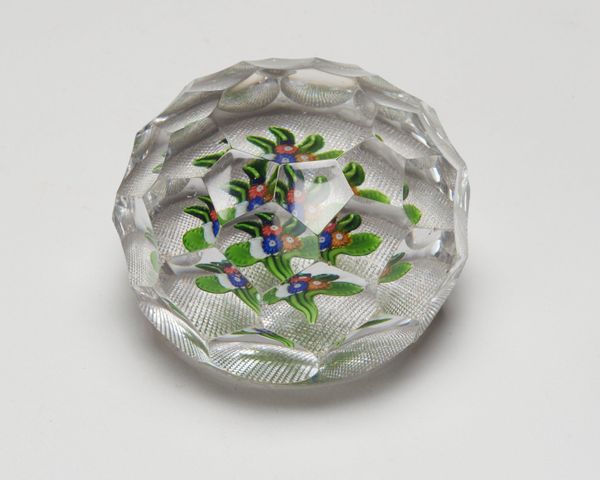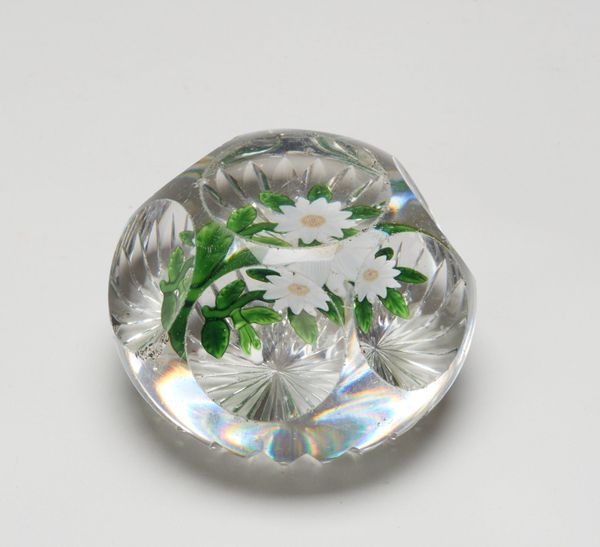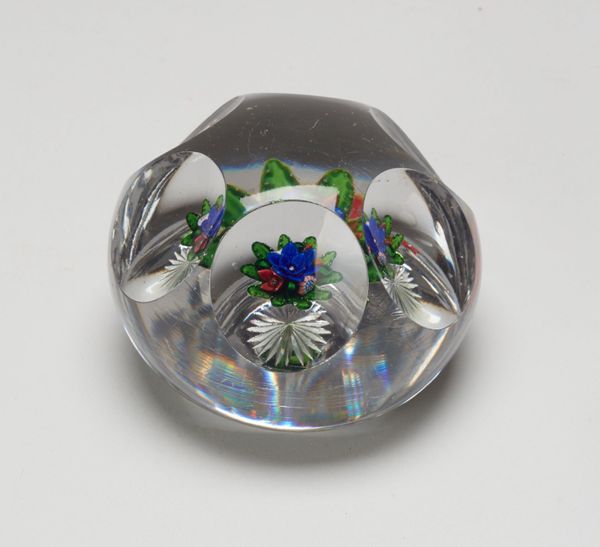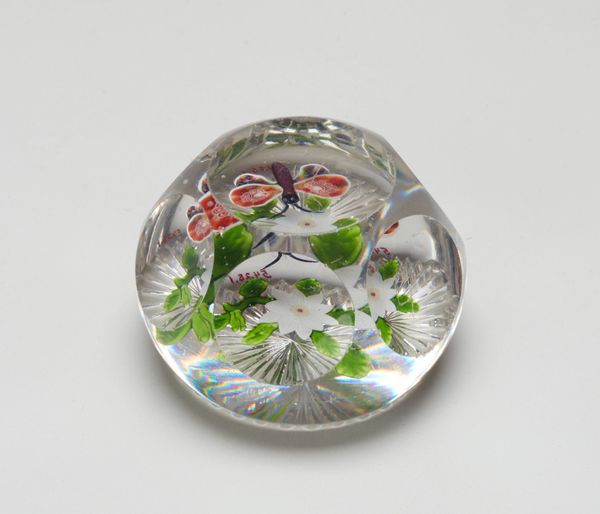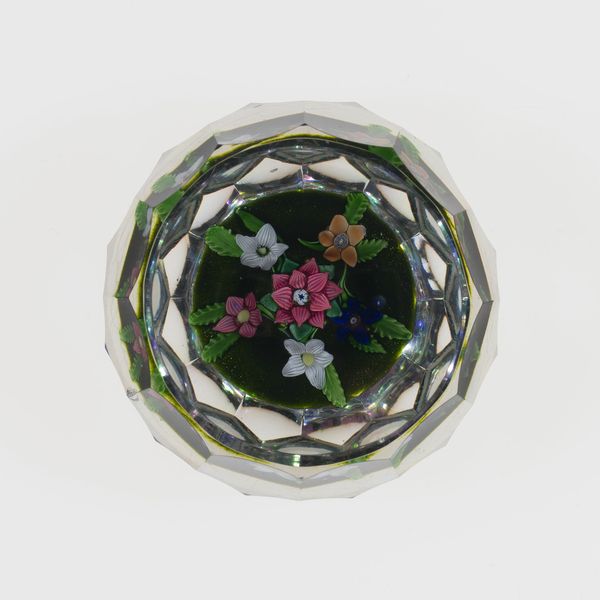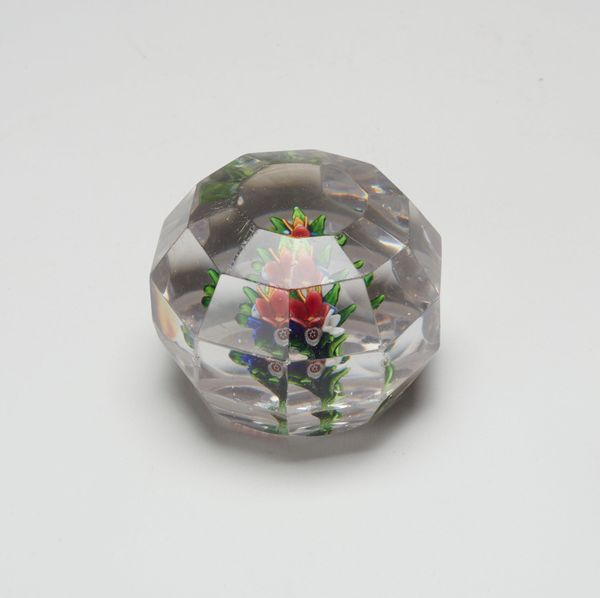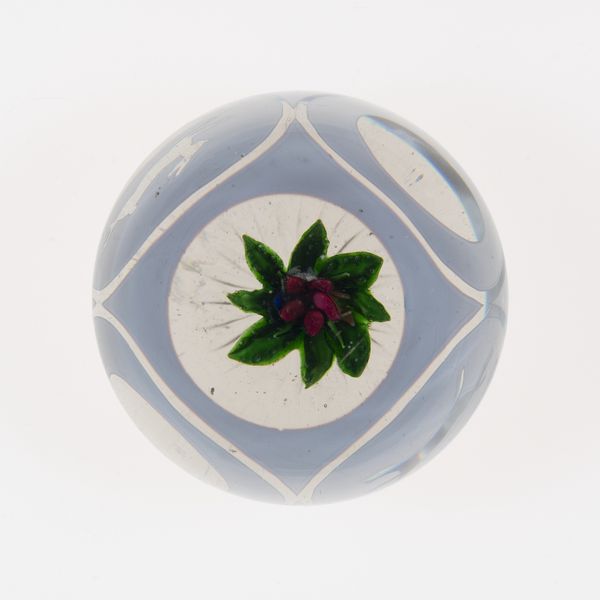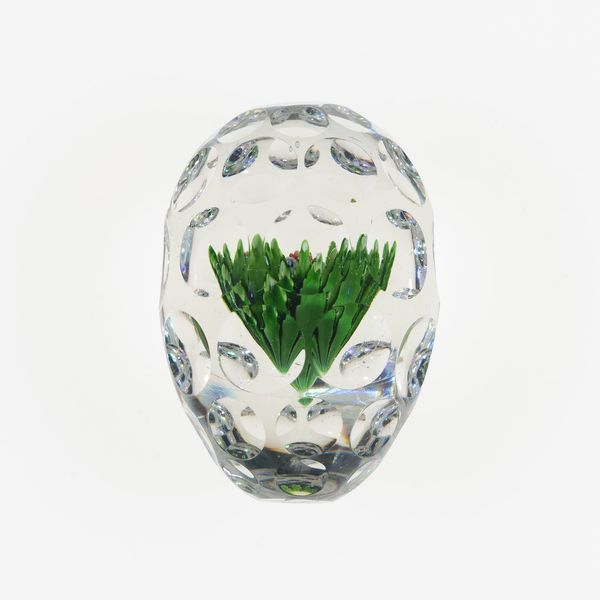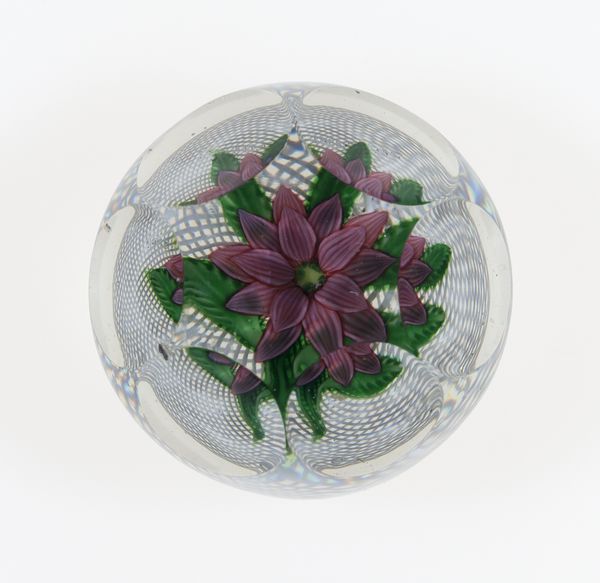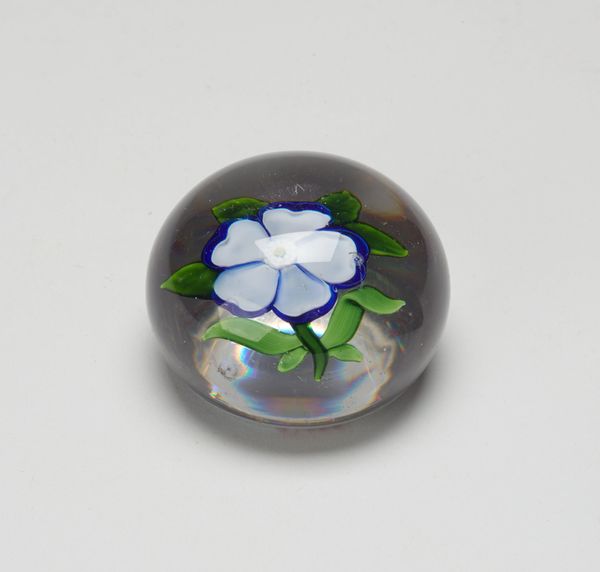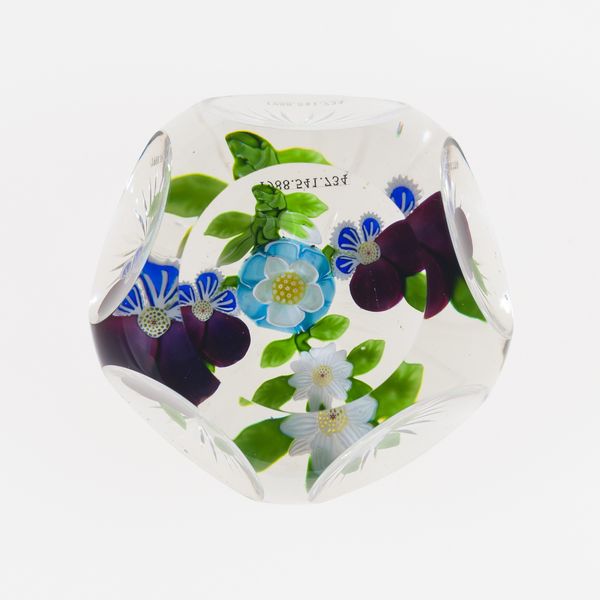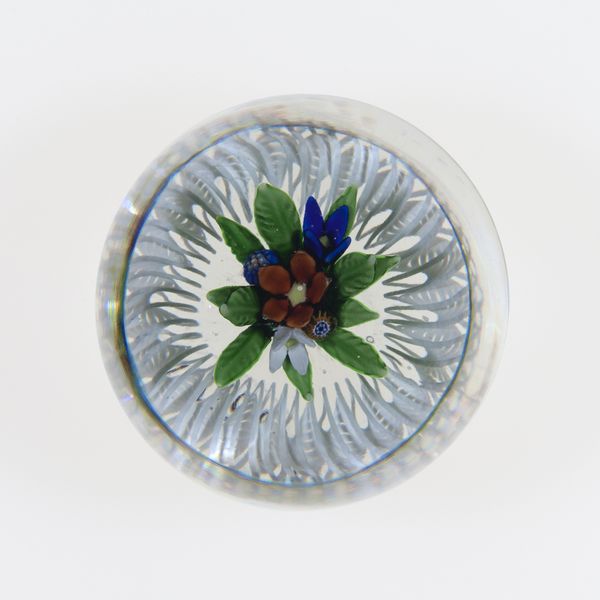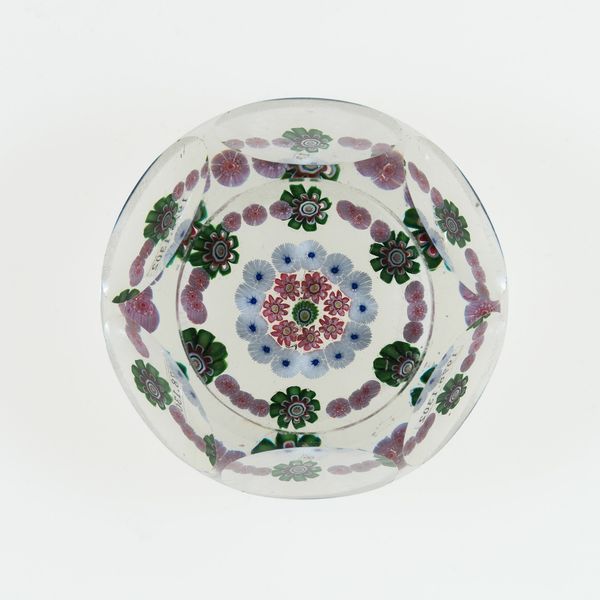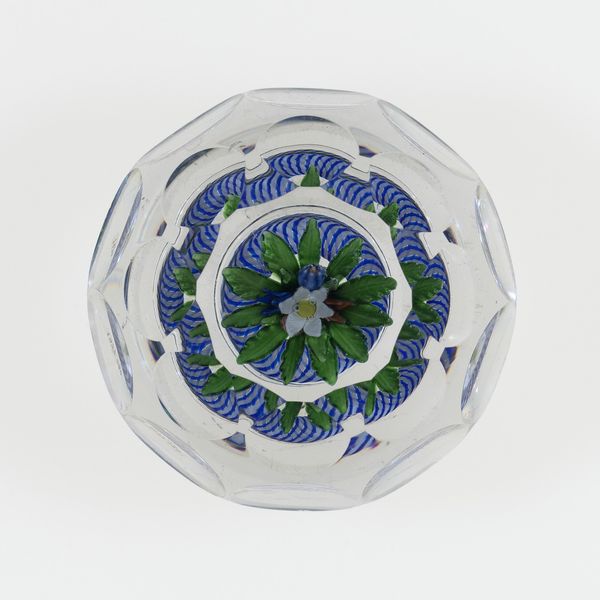
metal, glass, sculpture
#
metal
#
glass
#
geometric
#
sculpture
#
france
#
decorative-art
Dimensions: 2 1/8 x 4 x 4 in. (5.4 x 10.16 x 10.16 cm)
Copyright: Public Domain
Editor: So, this is "Paperweight," made by Saint Louis Glass Works around the 19th century, using glass and metal. It's at the Minneapolis Institute of Art. It looks delicate, almost like a frozen bouquet. How do you interpret this work? Curator: Well, glass itself has always carried symbolic weight, hasn't it? Think of stained glass windows – they are transformative. This paperweight captures a sense of preserved beauty. I see not just decorative art, but a miniature, symbolic world held captive within crystal. What does the central flower arrangement evoke for you? Editor: A sort of Victorian-era sentimentality? Maybe a memento mori? Curator: Precisely. The flower, especially, carries complex symbolism. Throughout history, flowers often represent ephemerality, the transient nature of beauty, and even resurrection. Is there a feeling, considering all that we know now, of it having survived for us, carrying beauty through to modernity? Editor: I think so. It feels less like an object and more like… a tiny vessel carrying a message across time. But why encase it? Why the specific choice of geometric cuts on the outside? Curator: Encasing can signify preservation but also control. The geometric facets may represent the taming of nature, or a desire for order and clarity – values that resonate strongly with the period it was created. What’s fascinating is that even in something as small as a paperweight, you find echoes of larger cultural attitudes. Editor: I never considered how much meaning could be packed into something so seemingly simple. Thank you for drawing out its story! Curator: My pleasure. It's these hidden depths that make art endlessly fascinating.
Comments
No comments
Be the first to comment and join the conversation on the ultimate creative platform.
